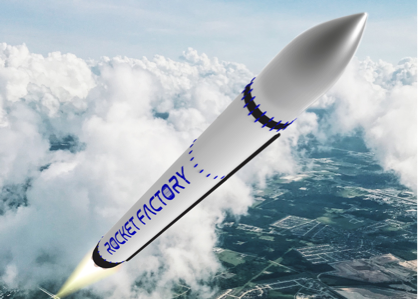Rocket Lab European Competitors Trying to Catch up with Top Launch Provider
18th May 2021
The private small satellite launch market is developing rapidly, and competition is very high, but some companies, like Rocket Lab, are way ahead in this new space race. Even though today the American RocketLab is an undisputed leader, many European companies are starting to catch up with it. Let’s see which European companies can become Rocket Lab competitors in the next few years.
Why Is RocketLab that Good?
Rocket Lab is known for numerous successful launches of its Electron lightweight rocket (over 19) and Photon satellite bus. The company recently announced the development of a heavy two-stage Neutron rocket that will transport not only cargo but also people. Rocket Lab also takes part in the NASA Artemis moon mission, during which it will launch the CAPSTONE CubeSat into lunar orbit.
The company owns launch sites in New Zealand and the United States, provides integrated satellite launch services, manufactures fuel tanks and other aerospace products.
Strong UK Competitors
In the meantime, European states and businesses, with the support of the European Space Agency, ESA, are actively stimulating the activities of private aerospace companies in their countries.
For example, a young British startup Skyrora has developed a whole line of suborbital rockets and the Skylark XL orbital rocket. While the rocket is still in testing, it cannot be considered a direct competitor to Rocket Lab Electron, but the first commercial launches are just around the corner. Besides, Skyrora XL has significant advantages over Electron:
- larger payload capacity — 315 kg versus 250kg,
- Ecosene, innovative affordable fuel made from plastic waste.
In addition, the company is developing an analogue of RocketLab Photon – Space Tug, which will be used to remove space debris and control satellites in orbit.
One more competitor to RocketLab is a German/Danish company Orbex Space, founded in 2015 and developing a lightweight rocket Prime from a base in the North of Scotland. Prime will launch satellites up to 150 kg into a standard sun-synchronous orbit.
Orbex Prime benefits include:
- Reusable first stage.
- Reduced weight.
- Low-toxic fuel, which reduces hydrocarbon emissions into the air by 9 times.
- Smart ignition system that reduces the risks of losing the rocket in case of engine failure.
Both Orbex and Skyrora plan to start their first commercial launches by late 2021 and hope to carry them out from the first Scottish spaceports. Since both companies are already based in Scotland, the cost of transporting rockets and equipment to the launch complex will be minimal, which, in turn, will affect the launch cost. As a reminder, RocketLab has a very low launch price in the small carrier market – $ 5.5 million.
European competitors
German aerospace company ISAR Aerospace has been in the space market since 2018 and has not yet had any high-profile achievements. ISAR experts are developing a two-stage Spectrum rocket that will run on liquid fuel and deliver up to 1000 kg of payload to low-earth orbit.
Another promising German player, Rocket Factory Augsburg, is building an RFA One rocket with flexible payload launch and deployment capabilities in virtually all types of orbits. Interestingly, the company aims for serial rocket production, not unlike automobile concerns, and plans to build on their experience.
Spanish PLD Space also has high ambitions in the small satellite launch market. Since 2011, the company has been developing the following rockets:
- Miura 1 for suborbital research flights in the upper atmosphere.
- Miura 5 with a reusable 1st stage for launching up to 300 kg of CubeSats and microsatellites into orbit.
- TEPREL engine series powered by non-toxic liquid fuels.
So far, PLD Space products are in the development and testing stages, so it’s too early to talk about real competition for Rocket Lab. The Miura 1 is expected to launch in 2021, and the Miura 5 in 2024.
Obviously, private European launch market growth would not have been possible without ESA and venture capital support. Besides, China and the United States are also moving forward and remain space leaders. So, while the space race is gaining new momentum, let’s stock up on popcorn and watch closely as more companies try to compete with Rocket Lab.






Thank you for your comment! It will be visible on the site after moderation.